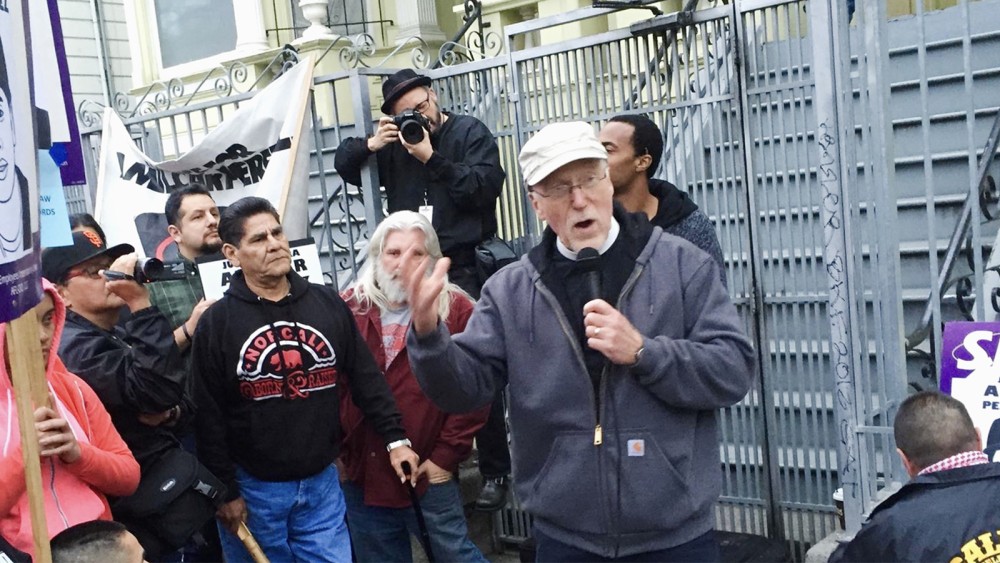As workers seek to unionize, some clergy are filling a crucial role

Richard Smith, an Episcopal priest, has been working to improve the lot of workers in California long enough to have protested alongside Cesar Chavez in the 1970s during the lettuce strike, when Smith was a Jesuit seminarian.
Now retired from St. John the Evangelist, a congregation in San Francisco’s north Mission District, he is one of a small number of clergy serving as intermediaries between labor unions and employers whose workers, particularly those in food service, are considering unionizing.
In a process known as majority sign-up or card check, employers forgo an anti-union campaign and instead choose to recognize a union endorsed by a majority of their employees. In the card check process—so-called because workers sign a union authorization card—the employer and the union engage a trusted third party to accurately count and verify signatures on the cards.





